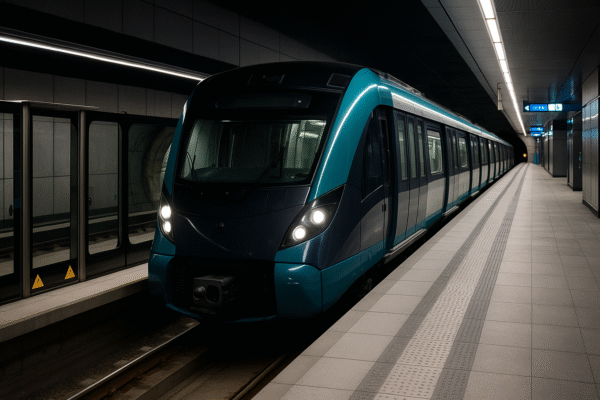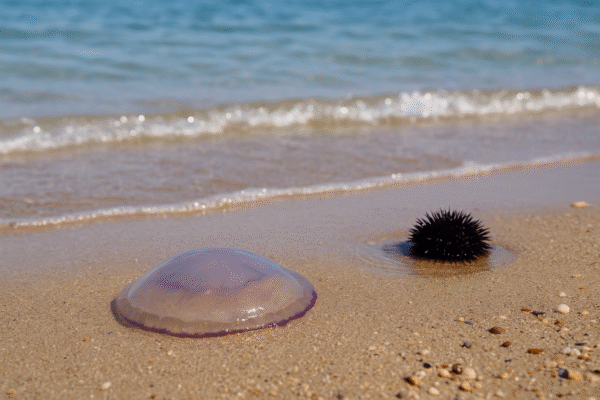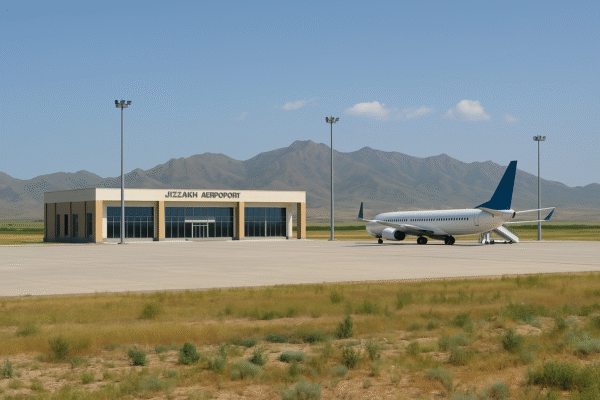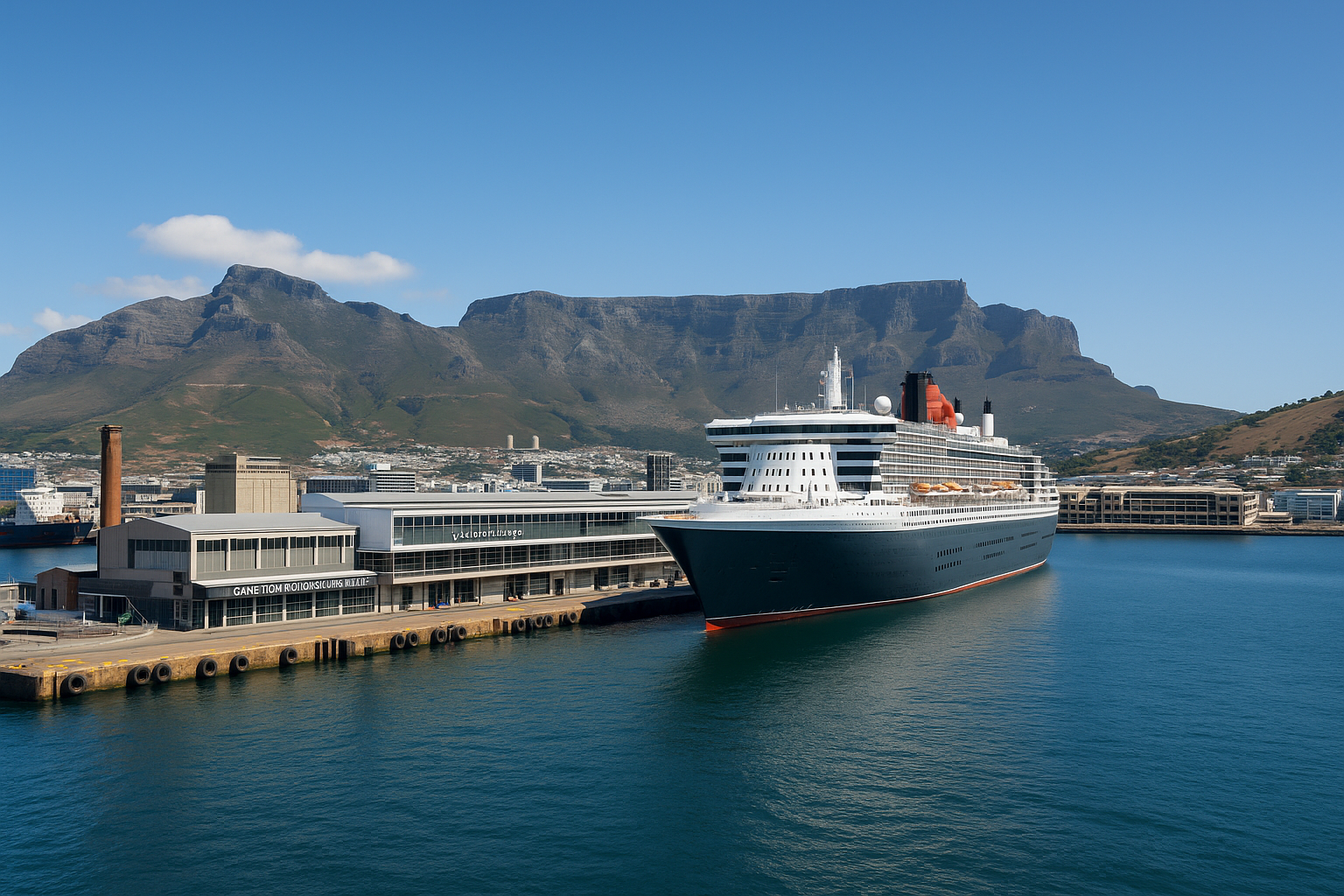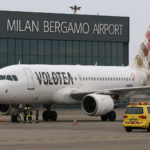Cape Town has sailed into the global spotlight following its most successful cruise season to date. The 2024/2025 cruise season saw a record-breaking 83 ship calls, including 11 inaugural visits, cementing the city’s status as Africa’s premier cruise destination and a rising star on global maritime tourism routes.
According to data from Wesgro, Cape Town’s official tourism, trade, and investment agency, March 2025 alone witnessed an unprecedented 22 ship calls, making it the busiest month in the city’s cruise history. This surge reflects growing interest from international cruise lines and showcases Cape Town’s strategic importance in the global cruise network.
First-Time Visits Enhance Global Appeal
A major highlight of the season was the maiden visit of Cunard’s Queen Anne on April 10, 2025. As one of the world’s most luxurious ocean liners, the Queen Anne’s debut at the Port of Cape Town marked a pivotal moment in the city’s cruise narrative.
The iconic ship’s arrival was celebrated not only for its prestige but also as a clear indicator that global cruise operators are placing South Africa—and Cape Town in particular—on their premium itineraries. The Queen Anne was just one of 11 ships making their first-ever stop in Cape Town, a promising sign for future cruise collaborations and expanded tourism offerings.
Economic Impact and Job Creation Surge
Beyond the impressive port activity, the cruise season also brought substantial economic benefits to the Western Cape. Wesgro reports that the 2023/2024 cruise season injected over R1.32 billion (USD 71 million) into the regional economy.
This financial uplift stemmed from passenger spending, port services, logistics, accommodation, local tours, and the extensive supply chains supporting cruise operations. According to the Western Cape Government, over 2,000 jobs were supported across sectors including hospitality, transport, and retail.
Dr. Ivan Meyer, Western Cape Minister of Economic Development and Tourism, emphasized the alignment between the booming cruise industry and the province’s Growth for Jobs Strategy. “Cruise tourism is a cornerstone in our vision to create sustainable economic opportunities and promote inclusive growth,” he said.
Cape Town Cruise Terminal: Modern Gateway to Africa
Central to Cape Town’s success as a cruise hub is the state-of-the-art Cape Town Cruise Terminal located at the iconic V&A Waterfront. The terminal, operated by the V&A Waterfront in partnership with Transnet National Ports Authority, has been instrumental in accommodating the rising number of vessels and passengers.
David Green, CEO of the V&A Waterfront, praised the facility’s role in enhancing visitor experiences. “The combination of world-class infrastructure, seamless logistics, and proximity to cultural landmarks positions Cape Town as a ‘must-visit’ port of call,” he noted.
Equipped with customs processing, baggage handling, and tourism information services, the terminal acts as a true gateway for travelers exploring South Africa’s scenic routes, winelands, and heritage destinations.
Building for the Future: Investments and Expansion
Cape Town’s long-term cruise strategy includes expanding port capacity, attracting more maiden calls, and extending the cruise season even further. The city is also ramping up its global marketing efforts, working closely with cruise brands to promote unique shore excursions and local partnerships.
Future plans include deeper collaboration with international cruise associations and the integration of smart port technologies to improve passenger flow and environmental monitoring. These investments aim to accommodate larger vessels and increasing passenger volumes, ensuring Cape Town remains competitive on the global cruise circuit.
Sustainability at the Core of Cruise Tourism
As cruise tourism grows, Cape Town is making sustainability a cornerstone of its development model. In line with global climate goals and the UN World Tourism Organization’s guidelines for sustainable tourism, the city is enhancing its port sustainability measures.
This includes improving waste management systems, reducing ship emissions through shore power readiness planning, and promoting low-impact tours to sensitive ecological zones. Environmental education and partnerships with cruise lines further support eco-conscious cruising in the region.
Cape Town is also prioritizing community engagement to ensure tourism benefits are equitably shared. Local businesses are being integrated into cruise itineraries, from township tours and artisan markets to culinary and cultural experiences that reflect the authentic Cape spirit.
Looking Ahead: A Bright Future for African Cruise Tourism
With tourism identified as a key growth sector in the Western Cape’s Vision 2035, cruise tourism is expected to play a central role in achieving the region’s goal of doubling tourism volumes by the next decade.
Wesgro and the City of Cape Town continue to collaborate with industry partners to scale up investment, improve services, and attract even more premium cruise brands. The port’s connectivity to Cape Town International Airport, along with South Africa’s improving tourism visa policies, enhances its appeal to international travelers.
Conclusion
Cape Town’s record-setting 2025 cruise season is more than a statistical milestone—it is a testament to the city’s transformation into a global tourism powerhouse. With high-end infrastructure, a commitment to sustainability, and strong economic benefits for locals, Cape Town is steering full speed ahead toward becoming one of the world’s top cruise destinations.
As luxury liners dock beneath Table Mountain and thousands of visitors explore the city’s vibrant offerings, Cape Town’s cruise tourism boom is redefining Africa’s place on the global cruise map—one ship call at a time.
For more travel news like this, keep reading Global Travel Wire

